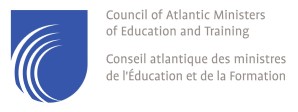
TOOLKIT FOR
WORKERS AND
WORK SEEKERS
Embrace the benefits of working together, resolve conflicts, accept personal responsibility for your own behaviour and, respecting diversity, negotiate acceptable compromises and solutions.
You can demonstrate your collaboration through:
- Interacting respectfully and purposefully with others, as part of a team/group in formal and informal environments
- Clearly sharing your own beliefs and values while respecting and appreciating those that differ
- Celebrating the benefits of working with others, recognizing the value of collaboration
- Understanding and respecting others’ needs
- Recognizing privilege and challenging discriminatory behaviour in self and others
- Compromising in working towards common goals
- Constructively negotiating and resolving conflicts with others, acknowledging and addressing biases
- Being prepared to reassess your position based on new information and/or the input of others
- Engaging in collaboration using a variety of media/tools
As an RCMP officer, Tyler has moved around quite a bit. His twin girls are in their third small community and, at 12 years old, are generally quite resilient. However, the latest town doesn’t offer much for teenagers and, as a result, there have been problems with youth crime, mental health issues and teen pregnancy. In his role as a police officer, but also as a father, Tyler wants to use his time at this posting to make it a better place for youth.
Socially, Tyler has connected with the high school principal, the youth pastor from their church, a couple of local business owners and the bank manager. All of them are community-minded and either work with, or are parents of, pre-teens or teens. Through informal conversations, they realize that they have a shared vision of creating positive opportunities for youth and they bring a variety of experiences from previous work and volunteer activities. Tyler and his friends recognize the importance of inviting youth, themselves, into the planning process. Together, they decide to host a town-hall meeting to begin an informal discussion about what youth would like to see in their community. Out of that discussion, they hope to generate some specific ideas to explore and to form a non-profit society to try to secure funding for one or more of those ideas.






